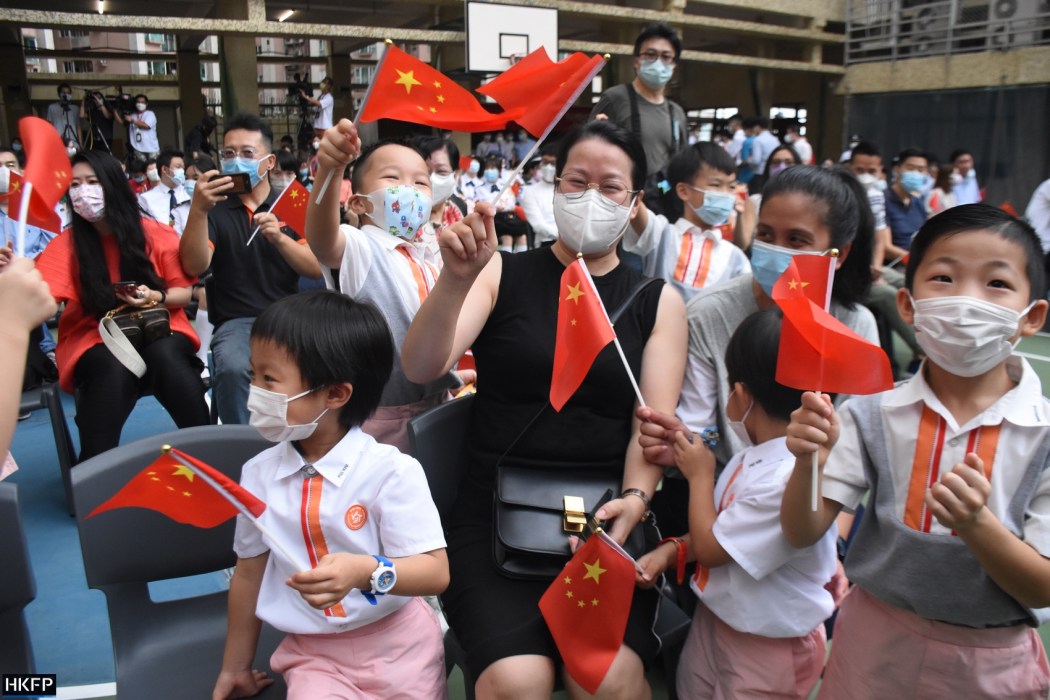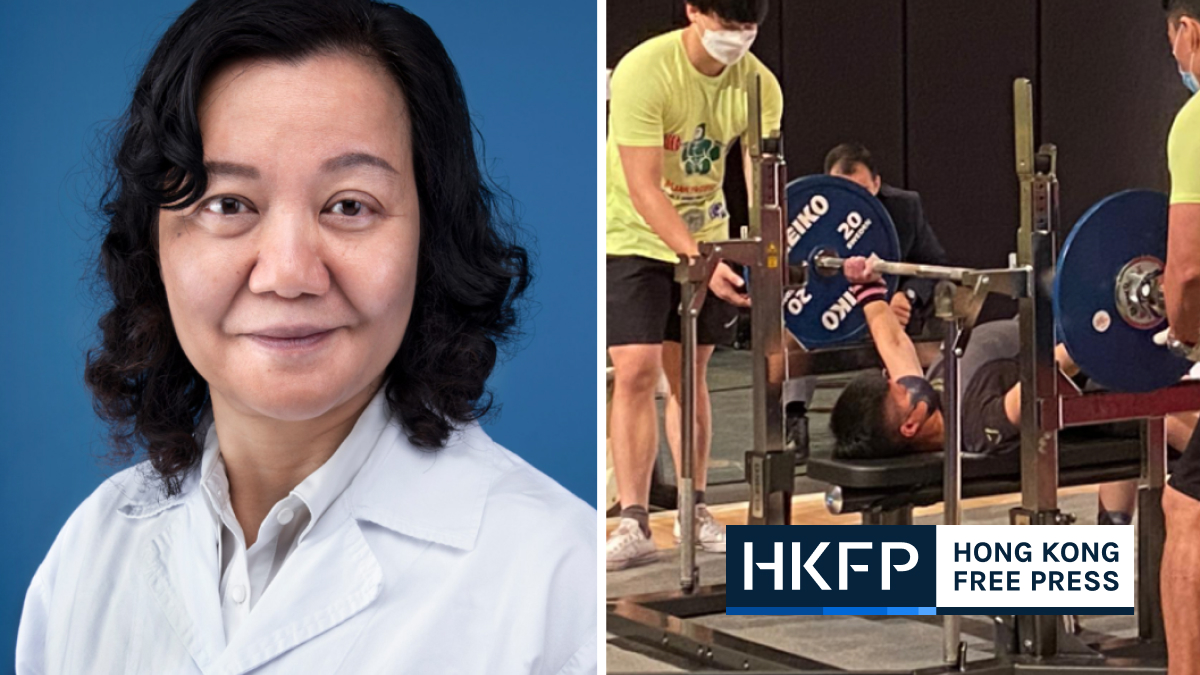A candidate running for the seat on the Legislative Council (LegCo) reserved for the education sector has said she would support granting amnesty to minors convicted of charges related to the 2019 protests and unrest.

And four of the five hopefuls in the sector said they would object to installing surveillance cameras in classrooms to monitor teachers and students, as one lawmaker urged.
Candidates Jessica Man Sze-wing, James Lam Yat-fung, Ting Kin-wa, Lam Wing-sze, and Chu Kwok-keung were invited to share their opinions on policies related to education and youth in the city during a pre-recorded forum organised by local broadsheet Ming Pao. The five will compete for a seat in the education constituency during the newly-restrictive December 19 polls.
Besides the geographical constituencies where ordinary voters can elect candidates running in 10 districts with two members each, special interest groups in a variety of sectors will produce sector representatives through restricted elections. These representatives will occupy 30 seats on the new “patriots only” legislature. The remaining 40 members will be chosen by the election committee.

With five candidates vying for one seat, the education sector is the constituency with the most candidates. Although the number of eligible voters in most functional constituencies was drastically reduced by Beijing’s electoral overhaul in March, the education sector still has more than 85,000 voters, the largest pool in the functional constituency section.
The education sector candidates were asked to give their position on a series of questions related to their profession and to young Hongkongers.
When asked if they would support setting up an independent committee to investigate or to review the 2019 anti-extradition bill protests and their effect on young people, Man, the principal of Po Leung kuk Lam Man Chan English Primary School, said she would support granting amnesty to those convicted of protest charges if they were under the age of 16.
“I think students need guidance and counselling, especially those under 16. I think [the government] should give them a chance. Punishment is best avoided,” Man said.

Another candidate, Chu, who is the vice chair of the pro-establishment Hong Kong Federation of Education Workers, said he would be against granting amnesty as the law is more important: “If one could get amnesty after committing a crime, what would the world become?”
Cameras in classrooms
Meanwhile, three candidates including Chu, James Lam and Lam Wing-sze said they would support the government in setting up an independent committee to review the causes of the 2019 protests and to find a way for society to move forward on the issue. None said they would support a committee to investigate the actual events, however.
None of the candidates supported installing surveillance cameras in classrooms, with four of them objecting to the idea explicitly and one saying she had “reservations.”
Earlier this year, lawmaker Tommy Cheung twice urged the government to require schools to set up closed circuit cameras in classrooms; education chief Kevin Yeung said the idea would be considered.
Lam Sze-wing said that, although most schools already have surveillance cameras in walkways and other public areas, as a microcosm of society the government must consult with the schools’ teachers, parents and school boards on the idea.

Both Ting, head of the Association of Hong Kong Kindergarten Education Professional Exchange, and Chu of the pro-establishment Federation said they were strongly against the idea. “Education is not about monitoring. Teachers need to be respected,” Ting said, adding that it would be “absolutely ridiculous” to install cameras.
Chu also said he is “absolutely” against the idea, as most teachers are law-abiding individuals who care about their students; both teachers and parents would find the idea repulsive.
Support HKFP | Policies & Ethics | Error/typo? | Contact Us | Newsletter | Transparency & Annual Report | Apps
Help safeguard press freedom & keep HKFP free for all readers by supporting our team

LATEST FROM HKFP
HKFP has an impartial stance, transparent funding, and balanced coverage guided by an Ethics Code and Corrections Policy.
Support press freedom & help us surpass 1,000 monthly Patrons: 100% independent, governed by an ethics code & not-for-profit.










